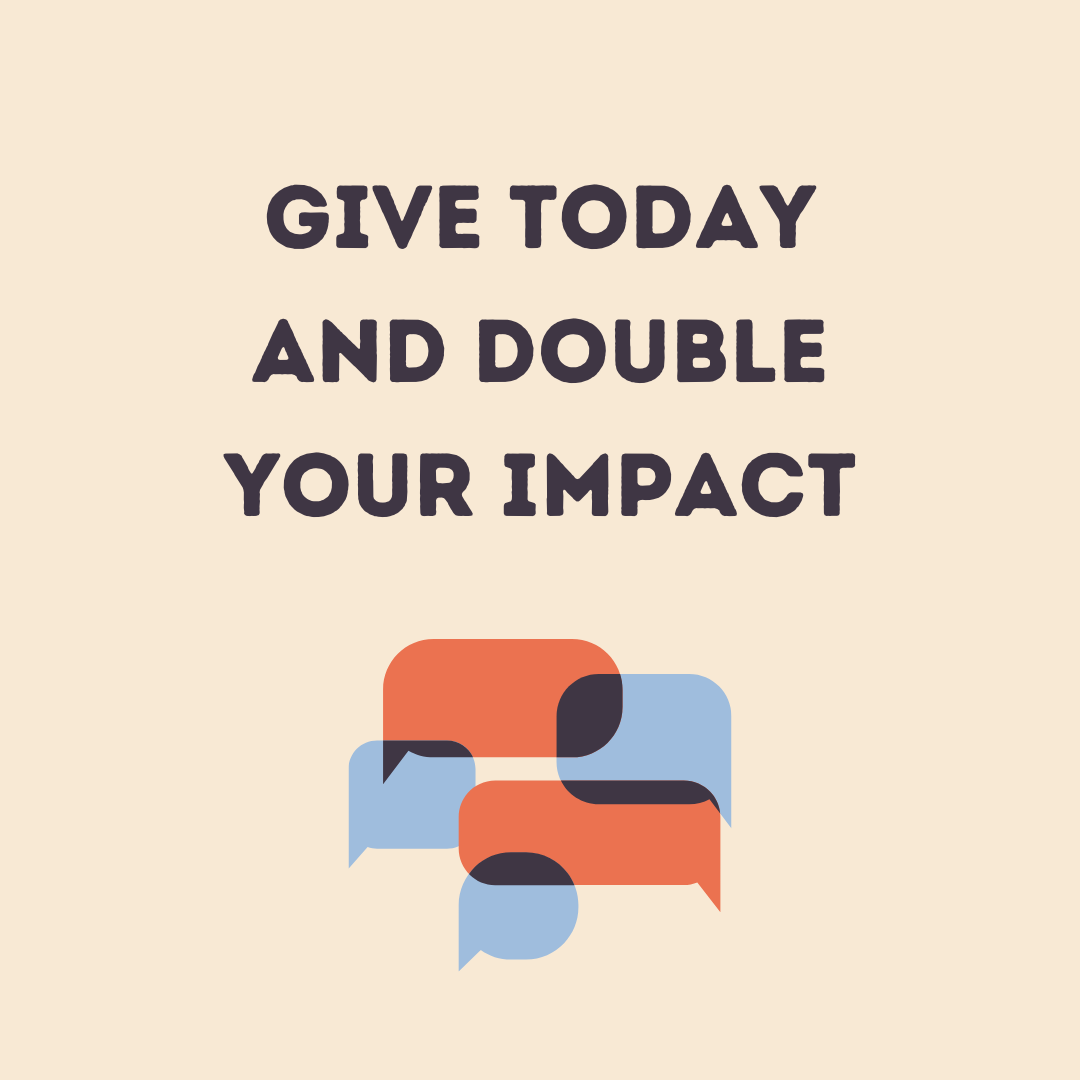Let’s empower young people through the power of dialogue.

A collage shows students and News Decoder staff interacting in different projects. (Illustration by News Decoder)
Today News Decoder kicks off our December end-of-year giving campaign, Bridging Divides: The Power of Dialogue. Every gift received by December 31st will be matched by a generous anonymous donor — giving your contribution twice the impact.
We live in a world where people who think they will disagree avoid each other. We shut our eyes and ears to ideas we don’t like. And that has gotten the world into a mess. Governments are deadlocked. People vote in extremists. Too little progress is being made to cool our planet.
Organizations flood social media with dangerous disinformation. Open-minded people find themselves shouted down and shut out.
Many of us remember a more reasonable time, but for young people polarization is the only world they know. News Decoder has made it our mission to combat this divide. We bring young people together across borders and get them to explore and tell other people’s stories in their own communities and in the wider world.
For us, it’s about dialogue. One person offers up an idea and has it countered by someone else and then counters that with another idea or more information. In dialogue, there is a back and forth — hypothesis and antithesis — until ultimately both parties reach a common understanding, a synthesis. It is not about ending with mutual agreement or with one person giving in and the other winning. It is about trading ideas.
In that process the thinking of each person is altered, maybe in very different ways.
Bridging divides through dialogue
News Decoder fosters dialogue in a number of its projects. The clearest example is in our Decoder Dialogues, monthly live video sessions in which we gather high school and university students from multiple countries with an expert to discuss an important issue. This year we held dialogues on artificial intelligence, leadership and climate change. In the last one we brought together students from India, Rwanda, Colombia, Belgium and the United States.
In our WePod project, nine organizations across Europe have come together to create a European community of podcasters, bridging languages and cultures.
In our Parallel (By)lines we bring together two storytellers — a professional journalist and a high school student — to compare how they covered a similar topic in different ways. In our latest, coming out on Wednesday, Enzo, a student in Zurich, talked with journalist Jeremy Solomons in Rwanda about the challenge of writing about identity and the idea of home when you have lived in different countries.
Through our open access learning resources, we explore the concepts of media literacy and give young people and educators tips and tools on how to spot disinformation, how to verify and fact check, how to question one’s own beliefs and how to track information they think they know to its source.
In our Schools Program we encourage students to tell stories about problems in their communities but then explore how the same problem affects communities in other countries and the different solutions people have come up with in these places. In training students to use the tools of journalism we show how to hone in on multiple perspectives and see things through other people’s eyes.
Empowering young people
We think young people can handle complex issues and controversial topics. Through our program we call PRDR — Pitch, Report, Draft and Revise — students pitch us stories and in that process we ask them to identify opposing perspectives.
The topics they choose are often ambitious and surprising: a student in the U.S. state of Delaware pitched an article on human trafficking; a student in Zurich wanted to report on the abuse and rescuing of racing dogs in Spain; a student in Italy pitched a story about the collective opposition to the mafia in Sicily. In the reporting stage we encourage them to interview people so that their information isn’t coming off solely from the Internet. In the drafting stage we ask them to present multiple perspectives in the stories they tell.
We encourage students to question prevailing narratives. A student in the United States wondered whether being a spectator of sports can be healthy — questioning the idea of the couch potato — and found that there are psychological benefits to sports spectatorship. A student in Switzerland looked into immigration and found that immigrants boosted the economies of their new countries.
In our podcasting camps we ask students to interview someone they know about a topic they have never discussed in detail. In doing so they discover that by asking questions and respectfully listening to the answers they learn important things about people that they hadn’t known before.
Next year marks a decade of these endeavours. At News Decoder we believe in the power of listening, of asking questions, of exploring knowledge and telling true stories. But most of all, we believe that all that becomes most powerful when done by young people. We believe that when young people listen to each other, when they confront problems and share ideas they can change the world.
That’s why we have made this our motto: Young people informed, connected and empowered.
And that’s why we’re asking you to invest in our work to help young people turn knowledge into action. For our end-of-year campaign Bridging Divides, every donation will be matched by an anonymous donor — transforming your contribution into twice the impact.
Help us help young people to think critically, open up to new ideas and communicate across borders and divides so they can act responsibly to transform our world.

Marcy Burstiner is the educational news director for News Decoder. She is a graduate of the Columbia Journalism School and professor emeritus of journalism and mass communication at the California Polytechnic University, Humboldt in California. She is the author of the book Investigative Reporting: From premise to publication.


